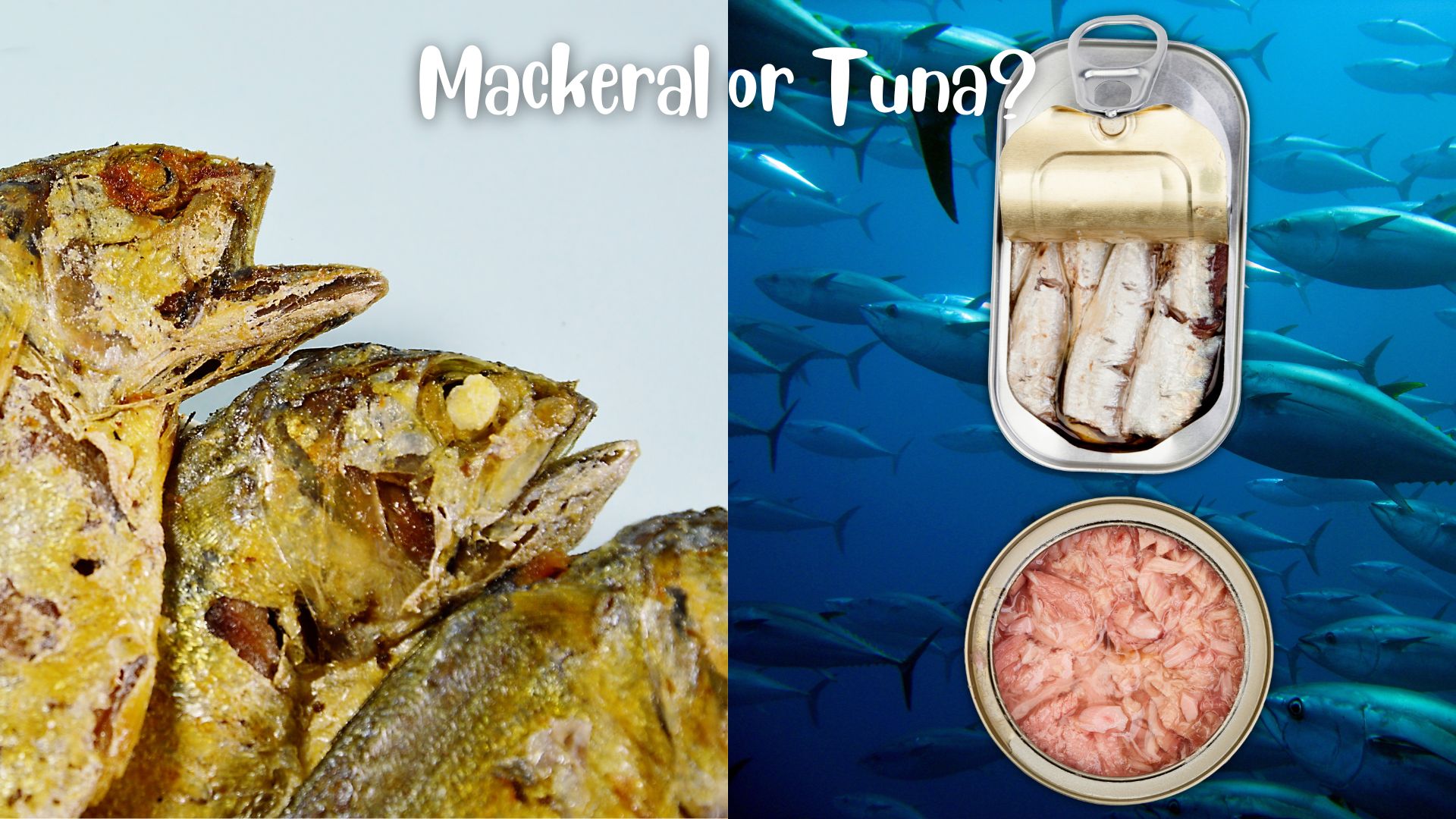Many ask whether they should eat mackerel or tuna? These two fish are both well-liked, but determining which one is the better option can be a challenge. While mackerel and tuna share some similarities, including their oily texture and delectable taste, they also have notable differences in terms of nutritional benefits, flavor, and sustainability.
In this article, we will delve deeper into the qualities of mackerel and tuna, weighing their advantages and disadvantages to help you make an informed decision about which fish is the optimal choice for your dietary preferences and environmental concerns.
Mackerel

Mackerel and tuna are two of the most popular fish types in the world, making them an essential part of many diets. But which one is better for you? It’s a difficult question because mackerel and tuna offer numerous health benefits, from providing essential vitamins and minerals to helping reduce inflammation. This article will compare mackerel and tuna head-to-head to determine which is best for your health.
When it comes to nutritional content, mackerel has more omega-3 fatty acids than tuna does. It also contains more iron, zinc, phosphorus, selenium, vitamin B12, and other nutrients. Mackerel is also low in mercury levels compared to other fish species, such as king mackerel or swordfish.
Calories In 1 Whole Mackerel Fish
Nutrition Facts
Serving Size454g
- Amount Per ServingCalories930
- % Daily Value *
- Total Fat
63g
97%
- Saturated Fat 15g 75%
- Cholesterol 318mg 106%
- Sodium 400mg 17%
- Potassium 30mg 1%
- Total Carbohydrate
0g
0%
- Dietary Fiber 0g 0%
- Sugars 0g
- Protein 85g 170%
- Vitamin A 25%
- Vitamin C 2%
- Calcium 4%
- Iron 41%
- Vitamin D 204%
* The % Daily Value tells you how much a nutrient in a serving of food contributes to a daily diet. 2,000 calories a day is used for general nutrition advice.
Tuna

If you are looking for an excellent source of healthy omega-3 fatty acids and lean protein, then mackerel or tuna would be plentiful. Both fish have several health benefits, but which is the best?
Tuna is a popular choice among seafood lovers due to its mild flavor and flaky texture. It is rich in protein and Omega-3s and is a good source of vitamins B6, B12, and niacin. Tuna also has the added bonus of containing selenium, an essential mineral that helps protect your cells from damage caused by free radicals.
Furthermore, eating tuna can help reduce inflammation in the body due to its high content of anti-inflammatory compounds.
Calories In 1 Whole Tuna Fish
Nutrition Facts
Serving Size454g
- Amount Per ServingCalories581
- % Daily Value *
- Total Fat
13.47g
21%
- Saturated Fat 4g 20%
- Cholesterol 191mg 64%
- Sodium 1700mg 71%
- Potassium 30mg 1%
- Total Carbohydrate
0g
0%
- Dietary Fiber 0g 0%
- Sugars 0g
- Protein 107.14g 215%
- Vitamin A 3%
- Calcium 5%
- Iron 24%
* The % Daily Value tells you how much a nutrient in a serving of food contributes to a daily diet. 2,000 calories a day is used for general nutrition advice.
Mackerel vs. Tuna

When it comes to mackerel vs. tuna, there are a few things to consider. Mackerel is an oily fish with high omega-3 fatty acids, making it incredibly healthy for you. On the other hand, tuna contains more protein than mackerel but fewer omega-3s. In terms of flavor, mackerel has a more pungent taste than tuna, which some may not enjoy.
Meanwhile, tuna has a milder flavor that pairs well with many different dishes. Because it has a mild flavor, you can easily use it with other ingredients to create something delicious. Tuna is also easy to cook, making it an excellent choice for anyone trying to eat healthier.
Price

When choosing between mackerel and tuna, the price can be a crucial factor. Mackerel is generally cheaper than tuna, as it is typically found in abundance in the wild, and there are no fishing quotas.
In contrast, tuna tends to be more expensive due to its scarcity and fishing quotas set by various governments worldwide. This can make a big difference when deciding which fish to buy for your next meal.
It’s important to note that while the price may be an indicator of quality, this isn’t always the case with mackerel or tuna. Depending on where you’re buying them, both types of fish can provide excellent value for money and high-quality taste if sourced correctly.
Availability

When deciding between mackerel and tuna, availability is an essential factor. Mackerel tends to be more readily available than tuna due to its wide distribution across the world’s oceans.
It can be found in salt and freshwater environments, making it easier to access in certain areas. On the other hand, tuna is more limited in its availability and can generally only be found in saltwater habitats.
Each fish’s seasonality should also be considered when determining availability. Mackerel are primarily caught during the summer, while tuna peak during late spring or early summertime.
Depending on where you live, one type of fish may not be available at all times but could still be accessible depending on location or time of year.
Health Benefits

When it comes to fish, everyone has their favorite. Mackerel or tuna? It can be difficult to choose! Not only do both types of fish offer delicious flavor, but they also have many health benefits.
Mackerel and tuna are both loaded with protein and healthy fats such as omega-3 fatty acids, which help reduce cholesterol levels in the body while promoting heart health. Both types of fish are excellent sources of essential vitamins and minerals like calcium, magnesium, iron, zinc, and vitamin B12.
Additionally, mackerel contains more selenium than any other type of seafood – an essential mineral for immune system protection.
Tuna is a rich source of potassium and phosphorus that helps maintain healthy bones and teeth. In addition to reducing inflammation in the body, it may also provide some relief from allergy symptoms due to its anti-inflammatory qualities.
Conclusion: Deciding Factors

The debate over which fish is better – mackerel or tuna – has been raging for years. The answer to this age-old question will ultimately depend on the individual’s preferences. Several factors are involved in deciding between a mackerel and a tuna, including nutritional value, taste, texture, cost, sustainability, and convenience.
Regarding nutrition and health benefits, both types of fish offer an excellent source of vitamins and minerals as well as omega-3 fatty acids. However, when it comes to flavor and texture, some people may prefer the milder taste and firmer texture of tuna, while others might opt for the more intense flavor of mackerel.
Price can also play a role in decision-making since tuna tends to be more expensive than mackerel due to its higher demand.
